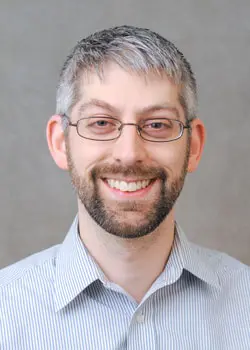

Dr. Joseph McFall


Dr. Joseph McFall
Department of Psychology Associate Professor Joseph McFall served as a visiting scholar in November at Pacific Lutheran University to work with faculty and students on multilevel data modeling techniques.
His campus lecture, "Multilevel Modeling, a Basic Introduction Using the EAMMi2 (Emerging Adulthood Measured at Multiple Institutions 2)," taught the basic concepts of an advanced statistical technique and applied them to example research questions using an open dataset on Emerging Adulthood that he and his collaborators published in 2018.
Emerging adulthood is the idea that young adults of today often delay “traditional” activities that serve as markers of adulthood, such as marriage, buying a home, starting a career, etc., in pursuit of other educational and identity goals.
Such a shift in the young adult experience is a normative shift in developed nations, may represent a cultural or generational change, and has not been fully explored to understand the causes (i.e., lengthening lifespans, societal economic recession, etc.) or effects (emotion, self-concept, relationship effects etc.).
Dr. McFall also led workshops on creating new survey instruments to measure emerging adulthood and proper procedures to assess the measures' psychometric properties (reliability and validity) in a multilevel framework.
As McFall explains, multilevel modeling is a technique to isolate variation in people's survey responses that is due to a group to which they belong, allowing purer estimates of their individual attitudes, beliefs and behavior. Without accounting for the effect of group-level effects on people's survey responses, survey results can be biased and lead to inaccurate conclusions.
In the emerging adulthood dataset, 3,143 young adults across 32 academic institutions are surveyed. Multilevel modeling allows the estimation of variability in people's responses that is shared due to membership in the same institution. For example, maybe students at some schools respond differently than students at other schools about what adulthood means to them. Then, factors can be analyzed at both the school level and at the individual level.
For example, maybe students at public universities view adulthood predictably differently than students at private universities; likewise, at small vs. large universities. At the same time, regardless of university type, maybe 18-20 year-olds have different opinions about adult identity than 21-24 year-olds. Or perhaps university type and age interact to depict a more interesting picture about variations in conceptualizations of adulthood that arise across individual and contextual influencing factors.